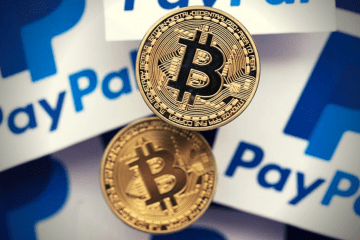Sending money overseas – cryptocurrency vs traditional bank transfers
Blockchain technology has the potential to change the way we think about money. While cryptocurrencies are nowhere near replacing traditional banking (at least not yet), they do have indisputable advantages over traditional banking in some areas – one of which is transferring money abroad.
Disadvantages of sending money overseas using bank transfers
Have you ever wanted to send money overseas – for example to a family member who lives abroad, or to a foreign company you’re doing business with?
If the answer is yes, then you are no stranger to the frustration caused by such transactions.
International bank transfers can take very long to finally arrive to the recipient. In fact, it is not uncommon for them to take five working days – a whole week. If you’re sending money to your family who is in financial trouble, you want them to be able to use it as soon as possible, not in a week! In case of business transactions, such a delay might in turn cause a project to be delayed – especially if the money has to be transferred further to subcontractors, and work can not be started before it arrives.
Moreover the amount of money that appears on their account can be quite a bit lower than what you initially sent. Not only does the bank deduct fees, it will also use its own exchange rate between different currencies. And you can bet that the exchange rate they use will be favourable to the bank, not the users.
So how can cryptocurrency help? What are its advantages when it comes to international money transfers?
Advantages of international money transfers using cryptocurrency
Okay, it’s clear that sending money abroad using bank transfer is not perfect. But are cryptocurrencies really the answer to your woes? Let’s take a look at the advantages cryptocurrency has over traditional bank transfers:
- No third party involved. In case of a traditional bank transfer, the money is being handled by a third party – in this case a bank. A cryptocurrency transaction cuts out the middleman and takes place directly between the users.
- No transaction fees, no exchange rate manipulation. Since the cryptocurrency transfers are done with no third party overseeing the transaction, there is no one to try and sneak a transaction fee. There is no entity that owns the blockchain, so no payments are being deducted from the users for using it. And there’s no risk of an unfavourable exchange rate causing the recipient to receive less money than was sent.
- Speed of transaction. It takes around 10 minutes for a Bitcoin transaction to be completed, no matter what country you and the other party reside in. This is true for other cryptocurrencies too. Instead of waiting for days, the recipient will get their money almost immediately.
- Decreased risk of fraud or identity theft. The decentralised nature of blockchain makes it virtually immune to hacking and fraud. Since a payment using cryptocurrencies is always a push transaction, not a pull transaction, as long as you keep your cryptocurrency accounts safe, there’s no risk of money being taken from your account without your knowledge.
- No place for human error. Banks are controlled by humans – and as such, there is always a possibility for human error. Blockchain transactions are fully automated, and there is no person overseeing them – this means that there is no way for a mistake to be made in any step of the process.
- Possibility to reach unbanked people. While most people in the so-called western countries have access to traditional banking, there are over 2 billion people in the world who do not have any account. That makes it impossible for them to receive money transfers from abroad. Many blockchain-related organisations are currently working on finding a way to serve the unbanked population – and make it possible for their relatives to send them money from a different country.
So are there any downsides?
We have shown you the advantages of using cryptocurrency for international money transfers. But there are also some things to consider before you close your bank account and decide to only use cryptocurrency to transfer money abroad.
While there is no exchange rate to think of when sending cryptocurrency, that is only true if you already keep your money in a cryptocurrency wallet, and the recipient will not want to exchange it to their country’s currency. If you and the recipient do not use cryptocurrency for any other reason than transferring money, you might have to exchange the currency – and not once, but twice.
Moreover, you have to take the fluctuations of cryptocurrency value into consideration. Bitcoin and other blockchain-based currencies are not perfectly stable yet – and their value might suddenly drop before the recipient manages to exchange it into their preferred currency.
Of course, traditional currencies might crash and lose value overnight as well – due to political events or economical causes related to the country that issues given currency. But cryptocurrencies have earned a reputation for their volatility, so you might want to take that into consideration before you make your decision.
What’s the future of sending money abroad?
With its many downsides, using a bank transfer to send money abroad is still a viable option widely used across the globe. But will that change in the future?
Cryptocurrencies are developing faster than ever, and more people than ever are using them nowadays. They are treated as an investment by many, but their advantages when it comes to transferring value can not be forgotten.
And as they become more widespread and accepted, it is likely that the kinks of cryptocurrencies will soon be ironed out, making them a popular and widely adopted alternative to traditional bank transfers.


